Executive Interviews
Our Executive Interviews feature top leaders from across the disciplines that we specialise in, sharing their career advice and experience with candidates seeking success in those sectors.
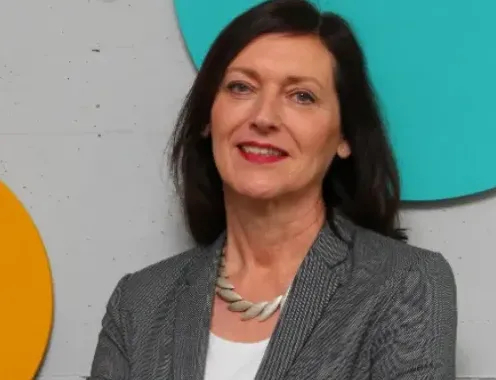
Marlies Tognella-Abbrederis - Director Human Resources - Bisnode D&B Schweiz AG
What do you love about Switzerland and why?
I have been living in Switzerland for 25 years now and I love the professional/working culture and the flat hierarchies that tend to come with many companies now. In addition, there is no great distance between employer and employees now – which creates an excellent working atmosphere. I work in Zurich, and even though the country us small it is really beautiful with a range of different cultures and languages.
What advice would you offer to someone moving to Switzerland?
The times were very different when I moved to Switzerland (particularly in terms of work permits) – it is now much easier to relocate and start to live your life. I would advise any newcomer to dive into the culture and try to speak the local language at least (whether it be French or German). Don’t expect it to be the same as your home country. For me, at the beginning it was more formal in the work surroundings and the behaviour/approach. During the 25 years I have been in the country attitudes and behaviour have changed for the better, in that it is now more informal and relaxed.
What are your growth plans?
Bisnode’s growth plans are mainly focused around bringing new countries on-board – particularly in the Southern hemisphere. We are now fairly satisfied with our levels of operation in the current countries we operate in.
What challenges await your business and how do you hope to overcome them?
One particular issue we now face is that a significant amount of information we tend to get paid to provide is readily available on the internet and social media. Technology and the internet has been responsible for many positive changes worldwide and in Switzerland, but for Bisnode this has meant we have to find new business fields.
What excites you about working for Bisnode?
It is never ending change within Bisnode. The organisation has changed and grown over the years – we were originally American but are now Swedish, working with global partners in franchising connections. In addition, the culture is such that I can work autonomously in my role which is important. Every employee has this freedom, within reason. There is also an ‘Open-door Policy’ - every person can go to the CEO to discuss issues. It is this positive working culture that sells the company to potential new employees.
If you could go back and give your younger (graduate) self some career advice, what would it be?
If I had the choice, I would go abroad earlier in my life to an English, French or Spanish speaking country. I studied languages but would do something more focused around Economics as I feel it would have assisted more by providing a basic understanding to business. Another language is also important but Economical knowledge is always good as a basis and is a good starting point.
Being a sparring partner is a pre requisite for an HR Division - what do you feel makes an effective sparring partner?
You have to know what the other departments are doing and give proactive advice. You make this possible by being in constant contact with other leaders, understanding what they are doing and what their needs are. But this alone does not make a good sparring partner, you also have to provide proactive solutions and make yourself available to others.
What makes you relaxed from working in such a pressured role?
Within work I feel I am in the right place, I love my work and the industry we are in. We have good partners in our senior management team and we know each other very well. This makes me relax within work.
Outside of work I feel it is important to have other areas where you can go to relax or have some recreation (sports, other hobbies). For me, it is painting, reading, sports (jogging, swimming and biking) – I try to do some exercise at lunch time, evenings and weekends.
What are your personal motivators?
I am motivated by the impact I have, and in my current role I feel I can influence things and help others. I also love to learn and continue my progression. I get great pride when I something going in the right direction that I have influenced.
When did you decide to explore a career in HR and why?
I tried a lot of other things before going into HR. I actually started with languages as I wanted to be a teacher, then moved into Finance and Sales. I noticed that I was not 100% satisfied with either and I knew I wanted to do further training and was choosing between marketing and HR as these were two things that interested me. My manager at the time told me to go into HR and do some training – this is when I did the Personalfachfrau. Generally, I took opportunities as they came along.
How did you plan out your career development path?
I did not really plan my career path – looking back on my career I feel I could have planned more, but I am happy by my decision to take chances as they came up.
What would you say is the most rewarding part of your role?
Motivation from working in a good company and industry. Thinking specifically within my role, I am incredibly proud when I see the results of engagement surveys, and the end result. It is also extremely rewarding to receive personal feedback from an applicant, employee or leader.
If you could change one thing in your career what would it be?
There were times where I had the feeling that the job I was in was not going to be the one I would do for the rest of my career. When I had this feeling I wish I would have changed sooner and tried other things.
What recruitment challenges do you face?
IT positions are often quite challenging to fill as we are a part of a special industry with a small market. We often have to give training to new employees as they come from other industries to give them the necessary knowledge on the industry and to ensure we can retain talent afterwards. We don’t necessarily have the highest salaries (in comparison to banking for example). The culture of freedom and autonomy plays a big role in retaining talent though.
What attributes do you look for when choosing a recruitment partner?
The most important factor for me is that any partner deals with what we are looking for efficiently and does not provide candidates that don’t fulfil the requirements. It is also equally important that the partner is interested in what they are looking for and is asking the right questions of her so they know
How would you advise a jobseeker to approach the current market?
Ensure you invest time into researching and achieving qualifications relevant to the job you are looking for. Also, be persistent, try several channels, use social media, the internet, job adverts and get in personal contact by phone with companies. Just call and be persistent. It can be tough but the rewards will soon come.
What advice would you give to future aspiring leaders, and why?
Any aspiring leader should think why they personally want it and make those reasons clear to themselves. Once this is clear, it is important to have training in this direction for being a leader, to have the tools you need.
Who is your most inspirational person in business and why?
My current manager has been really inspirational. He has been with the company for over 25 years - starting at the bottom and working to the top. His personality and will to go further got him to where he is today. He is very inspirational and a great leader and person.
If you could choose an Artistic/Musical/Sporting career, who would it be and why?
If anything, I would choose a sporting career (e.g. an endurance runner) – when I do sports I feel happy and relaxed, and full of energy. This rewards me with new energy to do other things (like work).
Do you have any hidden talents?
I really enjoy painting pictures. But overall, I get a long with everybody – I love to meet new people, and I think this helps in my role.
*Views and opinions contained within our Executive Interviews are those of the Interviewee and not views shared by EMEA Recruitment.*
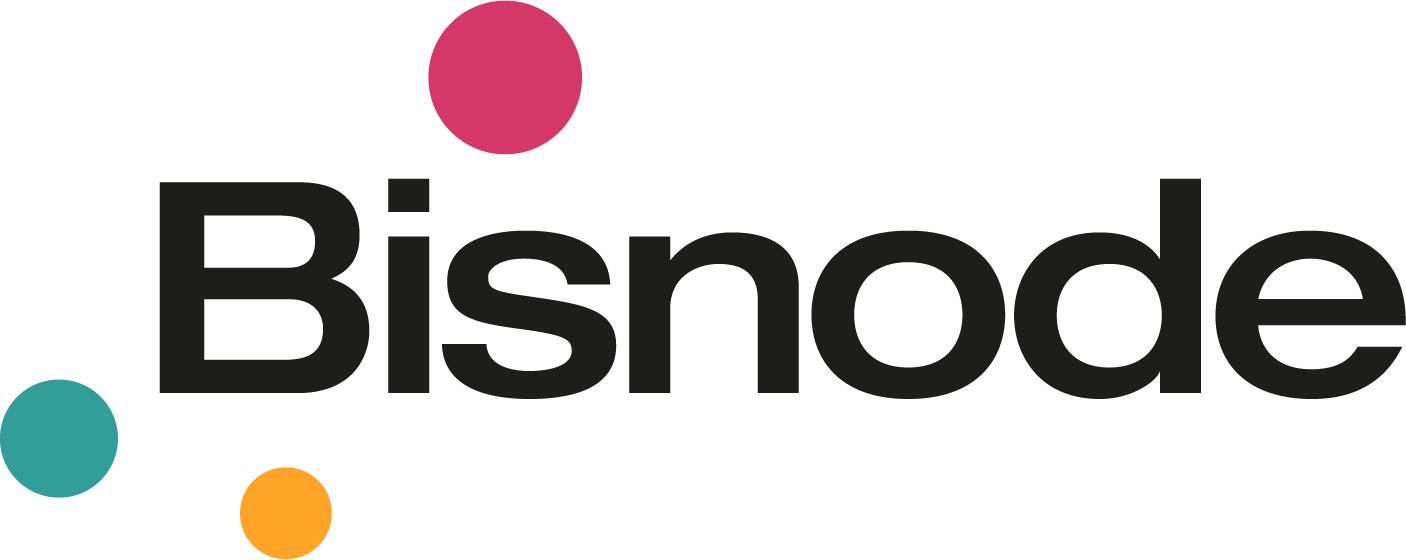
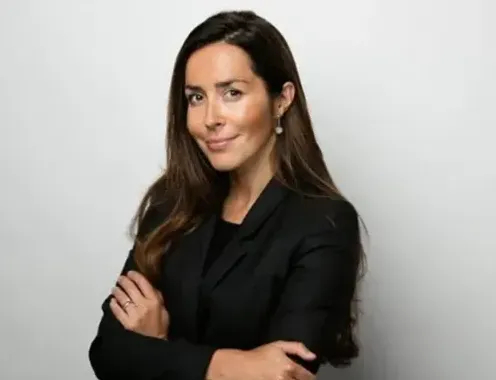
Sarah Stary - Head of HR Europe & Africa - Trina Solar
What excites you about working for Trina Solar?
When I joined Trina, we were a fairly small team of only 10 people spread across Europe, and only 6 in Zurich.
My main challenge was to recruit the team that we are now which is close to 100 people. What excited me from the beginning as it still does after 5 years is that we have been able to attract a lot of talent outside of different countries. We have a very international team, In Switzerland we have created a very versatile and international team which is passionate about what they do. That for me is a personal achievement and an environment that I enjoy and that I thrive in, in addition, we are in daily contact with our colleagues at our HQ in China. Communication can sometimes be challenging but it has been a great learning curve. Our colleagues in China have travelled here and have learned about our culture in Europe, and we have travelled to China and learned how processes work over there. This I feel has been a real win win.
What advice would you offer to someone moving to Switzerland?
It depends on where they come from. To acquaint yourself with permit regulations is helpful and when you are coming from a country that is outside of the Schengen region, to read up on how difficult it can be to obtain a permit, as we sometimes have applications from candidates with US nationality for instance and it is very tricky for us to obtain a permit for them.
In general it is also important to read up on the cost of living, because some candidates we interview tend not to do that right away. This is very important for salary negotiations, in order for you to prepare yourself and understand what you can actually ask for, and what you will need to make a decent living. It is true that Switzerland tends to be more expensive than many other countries out there in Europe.
What recruitment challenges do you face?
This depends on the role, what we tend to struggle with is to recruit people who have an International mind-set and can deal with a very dynamic and sometimes volatile environment, and stay on board because it can be stressful. In that way I say we are perhaps unique, we are certainly not a standard Swiss company. Some people enjoy this type of environment. Identifying whether the candidate is a fit doing the interview process is essential. Profiles that require certain language capability such as German, English and Spanish coupled with a technical background for example engineering are the types of roles we struggle with the most, the more languages that are required the more we struggle.
What advice would you give to future aspiring leaders, and why?
I would say that first of all it is important to have an idea of where you want to go in your career and envision it. Many things can go sideways and perhaps decide to pursue a different career later on, and none of that is right or wrong. But to have a plan or at least an idea of what you are doing and why you are doing it is important. At least this is what helped me; to have an idea of where I was going. It motivated me to work hard.
Also getting international exposure is important, this is key for anyone who aspires to be a leader, even a short stint perhaps in Asia or US can help. Any country that offers you international exposure, makes you broaden your horizon, this I feel is good even if you don’t see yourself living or working there long term, just that experience alone helps a lot. To be able to see and experience something new can help open your mind-set and is essential in developing. For example at Trina, we transfer staff on temporary assignments to China for one month, which is great for the company and helps our staff in becoming more rounded.
Lastly Education is important even if you have completed your Bachelor and perhaps a Master’s degree in the area you are working in, consider an MBA, and consider training. This is something we promote; we have started sending staff to Business School and Executive trainings. Employees feel and see the company is investing in them, but also they go back to learning something new. When you have been in a career for some time, having to do that can be a challenge. Putting yourself in a new situation, speaking to different people not necessarily your colleagues, it is a good stimulus. Employees come back with fresh ideas and broadened mind-sets. I believe training promotes thinking outside of the box and to make me work. Next have an idea of where you are starting and this helped me to start ha
Who is your most inspirational person in business and why?
There are many, but one that is obviously much discussed as a great role model for Women is Marissa Mayer. What she has done in terms of having a family and being in charge of Yahoo is very impressive. I know there is some controversy surrounding her and it is legitimate to ask whether it is easier for her as she can finance a Nanny, where an ordinary working mother might not. I get the point but still I think it is so important for women in business to have a role model who they can relate to. To discuss accomplished business women; even in a controversial context, is a good thing, as they are out there and visible. I don’t necessary agree with everything Marissa has done, and she still has to prove herself, but woman like her make it easier for career woman with families to be accepted in what is still all too often a Man’s world.
Describe yourself in 3 words
Energetic, Curious, Goal orientated
*Views and opinions contained within our Executive Interviews are those of the Interviewee and not views shared by EMEA Recruitment.*


Daniela Martin - Head of HR - Evraz
What do you love about Switzerland and why?
Its structure, location, security, humbleness
Despite the fact that Switzerland is one of the 5 most desired countries to live in in the world, its humbleness always surprises me. At the point of where I am in my life and career, I truly enjoy the clarity which is the result of this country’s clear structure and rules. It gives me and my family a great feeling of security, which in today’s world we live in has become a very important word.
What advice would you offer to someone moving to Switzerland?
I`d like to highlight that this is coming from a person who is an expat myself: my recommendation to someone moving to Switzerland is to be culturally aware, do your homework and prepare well – meaning to be informed about Switzerland 's cultural values, the mentality of Swiss people, the working culture, language - to which extend possible. To be open to understand what makes Switzerland so Swiss! It will make the transition and adaptation in this country less challenging, plus it may open the door to numerous opportunities.
What excites you about working for Evraz?
The international environment and dynamic working culture, plenty of opportunities for me to learn and grow professionally as well as a person.
Being a sparring partner is a pre requisite for and HR/Finance Division – what do you feel makes an effective sparring partner?
Ensuring mutual understanding of common goals and needs from both sides. Being professional and competent in your own area of work, to be able to communicate your views and add important factors to influence management decisions.
What would you say is the most rewarding part of your role?
The most rewarding part of my role I would say is recognizing that people rely on me as their trusting partner.
What recruitment challenges do you face?
Time - no enough time to recruite for a certain role,which takes away on the quality of selection process; not enough candidates available at the right time, with the right profile
What attributes do you look for when choosing a recruitment partner?
Someone willing to take time to understand the needs or requirements for the role, the fine details beyond the job description. Thorough pre-selection of the candidates and close contact throughout the recruitment process.
What would be your advice to someone aspiring to be where you are now?
Believe in yourself, always try to be excellent in whatever you do. Work hard, but nurture your personality and character along the way, because that is what makes you stand out.
*Views and opinions contained within our Executive Interviews are those of the Interviewee and not views shared by EMEA Recruitment.*

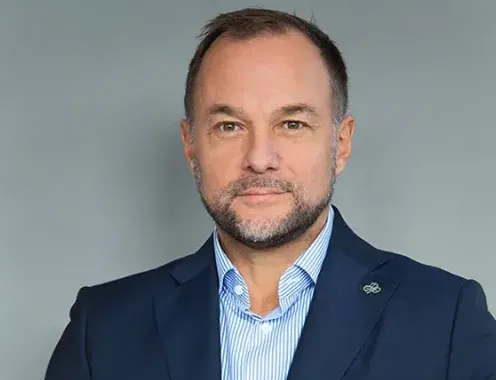
Emanuel Frantz - Chief Financial and Administration Officer - EBU
Yahoo and the European Broadcasting Union (EBU) are 2 very different organisations. How have you managed the change?
Like any change there have been 3 elements; the culture, the sector, and the "process/system/environment" piece. In this case I was really quite lucky, as I had a good transition with my predecessor - having the handover period is a success factor. Another major factor is ensuring that the first 90 days are really dedicated to building relations with your key internal and external stakeholders, review status of critical projects, make sure you are visible. I met the team, the board, various key vendors, and project stakeholders. This allowed me to make immediate impactful tactical decisions, such as an ERP Migration choice, which saved costs and helped my new team.
What are your thoughts on the upcoming Ecopop Referendum?
Within Switzerland, the Lac Leman area has a history of being able to attract a skilled workforce from neighbouring countries. Also the Swiss economy has been a steady grower with low unemployment at about 3%.Current demographics and the mix of available skills create demand for labour. So government and industry have to find a solution to fill the demand. New training takes a generation even if there is a strong will to keep jobs within the native population, so there is no discernible short or long-term threat. The labour market will settle down and- I believe in the pragmatic nature of the Swiss politicians, although it could possibly result in the tightening of quotas for specific countries in the short term.
If you could go back in time and give some career advice to your younger, graduate self, what would it be?
Mobility is key! The obvious thought here is geographic mobility, but I would look first at skillset mobility. Bridging over the different financial pillars earlier in my career (transactional, compliance, FP & A, Treasury/Tax) has enabled me to take on the broader CFO roles I have held more recently. Then we have to consider sector mobility. Each sector brings its own unique perspective. This enables one to experience different solutions for key business initiatives such a vendor financing program or key projects such as an ERP roll-out). Coming finally to geographical mobility - this has been essential for my development. It gives you a certain adaptability and agility which enables you to deal with a volatile and increasingly diverse and riskier business world. You get to understand not only different cultures, but different business structures, and tax regimes. Overall, with every different move, you learn to be more adaptable, and the benefit to a prospective employer is that you will be able to come up to speed, and have a positive impact, very quickly.
What has been your best, or worst, interview experience?
I had a pretty bad one sitting on the interviewer side of the table. The candidate knew nothing about the company he was interviewing for. It was clear he had not even done the most basic prep. So, we figured this out pretty quickly, but instead of admitting it and perhaps apologising and saying "I'm sorry, I didn't realise it was this level of interview," or something similar, he carried on, and invented facts about the company. This led to a situation where these incorrect facts were being given to me, and it became a little strange and very embarrassing for everybody. I had to cut the interview short.
What advice would you give to someone who is looking for to move into a new role at Senior Finance Manager/CFO level?
Continuously network through various channels - Alumni, LinkedIn, breakfast meetings. All of these things are good to raise your profile but get fresh ideas outside in. . It will help you understand if your job is under threat, also you will already know people when you are in a situation where you need to know people. The Big 4 is always a good network route. Another thing to do is; always take the courtesy call from head hunters. It is an opportunity to exchange information. It is not always about you or about a job - it could be a request for a referral. Finally, you always have your career plan in mind. You need to know what you want, whether the opportunity presents itself in the next quarter, or in the next year, you need to be ready for it. If you plan correctly, you can fulfil your dreams.
If you could have had a career in sports, art, or music, which would it have been, and why?
It would be sports. Within sports, it would either be football, or cycling. I played in a football team, and the camaraderie and teamwork is very fulfilling. I still play for fun. Cycling is different, it's like mental yoga. You get wonderful scenery, and this feeling of melding with a machine.
We saw that Switzerland's economy failed to grow in the 2nd Quarter of 2014. What do you think are the major challenges that lie ahead for Switzerland's growth?
With the CHF seen as a "safe haven" currency by other individuals and economies, this certainly provides a short-term challenge to a predominantly export oriented economy. The longer term challenge is to transition out of these corporation tax reforms. Work has already started on this for example, with the abolition of tax holidays. Again, the pragmatic political approach should see the reinvention of some EU friendly, and EU/OECDcompatible, tax incentives. These will surely maintain and continue to attract foreign investment in Switzerland.
Finally, what challenges does the EBU face?
One example is the financial situation of our members. The EBU believes Public Service Media is an essential element of democratic societies where a strives a transparent world of communication for the common good, creating content that freely informs, educates and entertains the public, and continue striving to perform to the highest standards with moral integrity and maximum efficiency. If the political system closes a Public Broadcaster because there is "enough" public funding priority (as we saw recently in Greece), we have to state the very strong case that a free and democratic society needs a completely neutral media provider. Otherwise we risk a challenge in the sustainability of the public funding model. There is also a challenge in the delivery of media in a connected world, and how this effects the consumption of media content by the younger generation. Nowadays this could come through a phone, a tablet, online to a television set via on demand services. This is a generational change and the younger audiences are shifting away from "linear" television. So this is an operational challenge; we have to assist our members in evolving their offers in this new environment.
*Views and opinions contained within our Executive Interviews are those of the Interviewee and not views shared by EMEA Recruitment.*
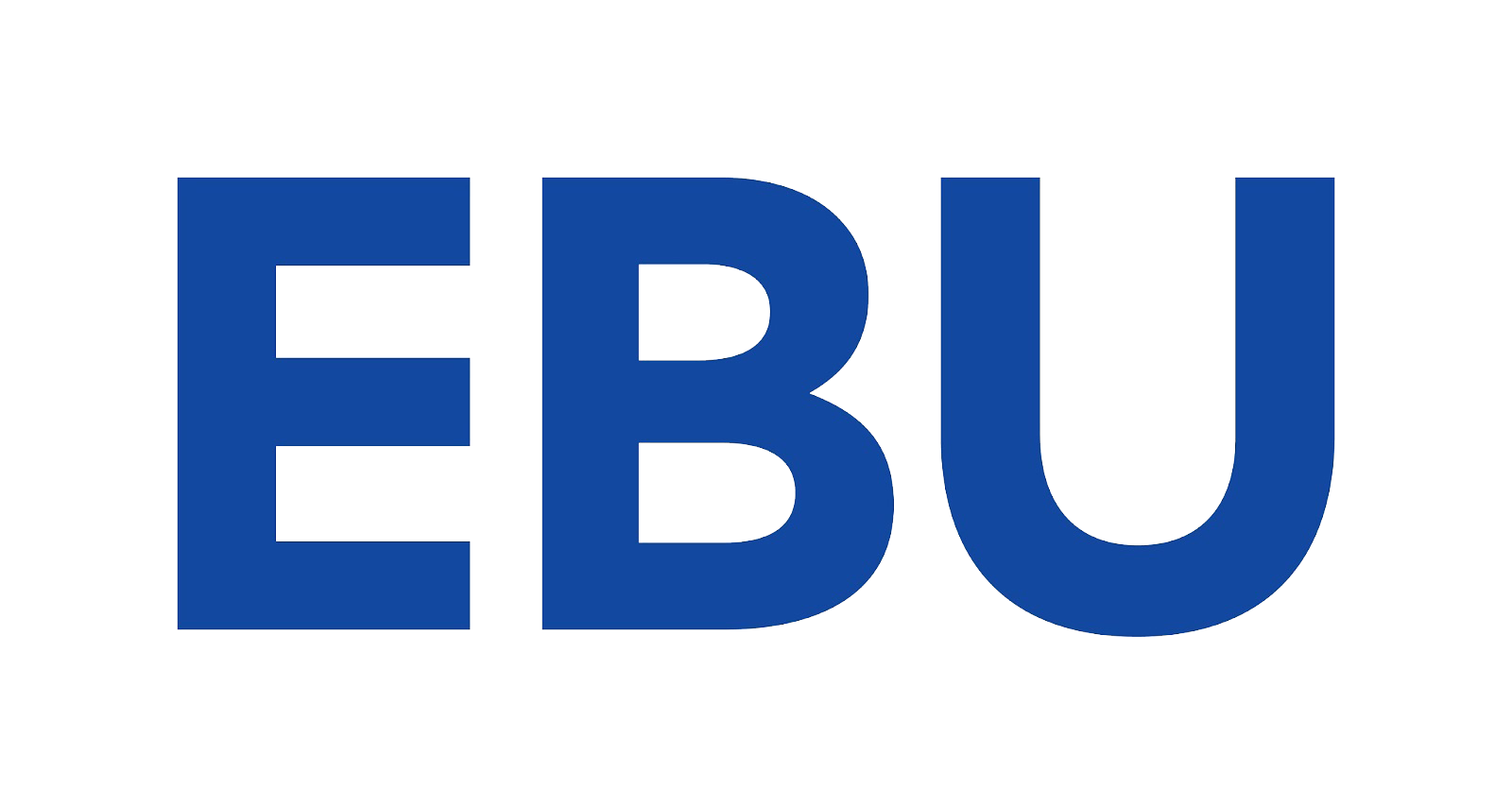
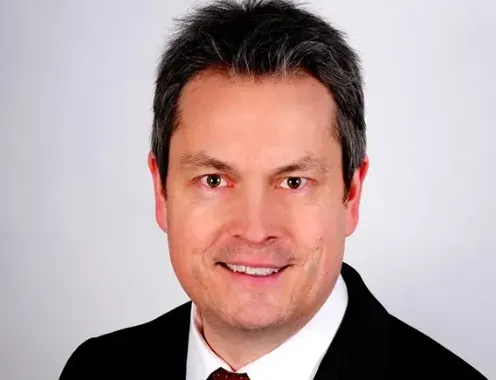
Stefan Spiegel - CFO - SBB Cargo
If you could go back and give your younger (graduate) self some career advice, what would it be?
I originally studied Physics and Mathematics and at that time I didn’t know to become CFO at a company like SBB Cargo. To give advice from that point of view is therefore a little bit difficult, but what I see today is that there is not a specific CV or personality type in finance, there are always different pathways. The key is that everything you do, you should do it with enthusiasm, fun, passion and curiosity. When we are in discussions to promote a person within our company, we do not discuss whether this person has announced its aspiration, we discuss ‘what does the person do’, ‘what are the results the person has delivered' and ‘what is the standing this person has’. These are the points on which we can decide whether somebody should be promoted.
What attributes do you think make a good leader in finance?
It is twofold, on the one hand you have compliance issues and you must be able to handle them with 100% accuracy. For example, internal controls, accounting standards and tax issues. You must be very precise, honest, exact and persistent. On the other hand, coming from a physics perspective where you describe nature using mathematical models, a good finance leader is capable to describe business with its financial models. Not only describing what is happening, but overtaking the role of a performance leader showing the way to profitability and growth. Here you need a holistic approach, creativity and analytical thinking, so quite different to compliance issues.
What are the most common mistakes you see more junior candidates make at interview and what advice would you give for preparation?
I am not sure ‘mistakes’ is the right word. I think it is all about preparation for the interview. So first a candidate should study the annual report of a company, he should understand the business and develop his ideas about the challenges of the company. Second the candidate should understand what he is looking for, how he likes to work and what he does not like to do. He should describe his idea of the job role and be able to define goals he would like to reach within this role. And last everyone should be able to describe what he achieved in his previous roles and what was the impact he made on the company’s development.
How important was it for you to develop relationships outside of finance for career development?
It is always good to have relationships, they usually help, not always, but could have potential. However, I always say that no-one would recommend you if you are not doing a good job, so this is the base requirement.
What excites you about working for SBB Cargo?
First of all it is the business itself, logistics is like the blood of the economy, without logistics nothing moves! A big portion of well-known Swiss companies are clients of SBB Cargo and also within Europe. We have a very high level of competition, also competing against road. The logistics volumes react very quickly on economic switches, so the business is very fast paced and changes from month to month. Another point, from a strategic perspective, is, that if you look at rail freight the production of the business has been done the same way for the last 100 years. Actually, regarding for example developments of self-driving vehicles on the road we stand at the beginning of an innovation boost. So over the next 20-30 years the way that rail freight business is done must change fundamentally. Being part of these changes is a very exciting perspective.
Second, concerning the finance function of the SBB, the possibilities to develop and follow your own ideas are very high. You are attached as a division in a big company, where we get the support of a big company, but often we can act like a mid-sized company and decide relatively independently as SBB Cargo.
SBB Cargo saw its first two years in profit in 2013 & 2014. What challenges await the business in 2015 and how do you hope to overcome them?
The company was for 40 years producing negative figures, but since 2013 we show positive results. Now the downturn of the Euro will hit the profitability of our business quite seriously. In addition, oil prices are also going down improving cost advantages of road trucks, and raffineries in Switzerland are shutting down reducing our freight volume. Certainly the start to 2015 could have been better! Fortunately we already have set up a good portion of efficiency and innovation programs, which are now becoming much more important than before.
What do you find are the main challenges attracting finance talent to SBB and what do you see as the key selling points you can offer candidates?
If you join SBB you can get a very high level of variety and complexity. For example if you make investments in power plants or rail infrastructure you discuss over periods of 80 years or more. If you buy new rolling stock, such as the new trains for the intercity tracks, these are investments for the next 40 years. On the other hand at Cargo, we are deciding from week to week about new relations or closing down non-profitable ones – and all such decisions are depending on each other as the production processes are linked together.
Another point is that hierarchies are pretty flat and you can move within SBB very easily. So for example, if you are a younger finance talent you have the opportunity to gain experience across many different branches and finance functions in a short time: Real estate, energy, construction, industry production, transportation, retail, tourism and logistics.
For senior people that already have greater knowledge and experience, SBB offers a lot of transformation projects within the finance function across the whole company. This allows you to develop your ideas, to change processes in a significant way and to leave your footprint within one of the most regarded companies within Switzerland.
What is the most rewarding aspect of your role?
The success and impact we achieved with SBB Cargo. When you can change that much in a company and you can observe the success you have, then I believe this is the really rewarding aspect of the role. Besides, the actual role is very favourable concerning flexibility and self-determination.
Switzerland's economy showed limited growth in 2014, what do you think are the major challenges that lie ahead for Switzerland's growth?
Switzerland’s economy is very dependent on international relations. With the downturn of the Euro Swiss economy, mainly export industry, will even more be forced to follow the next level of efficiency programs. Automation, innovation, research towards products with high value-added will get more and more important to overcome the disadvanteges of high production costs.
Looking back through your established career, what would you identify as a personal highlight?
The turnaround of SBB Cargo.A lot of people inside and outside thought that with this business model it would be impossible to get positive figures. But we not only managed the financial turnaround, at the same time we reduced our finance department by more than 30% to gain efficiencies, whilst introducing on a green field basis a fully new SAP ERP system. Due to the added workload and risks, normally you wouldn’t do such changes at the same time. To overcome such obstacles gives you a deep satisfaction.
*Views and opinions contained within our Executive Interviews are those of the Interviewee and not views shared by EMEA Recruitment.*

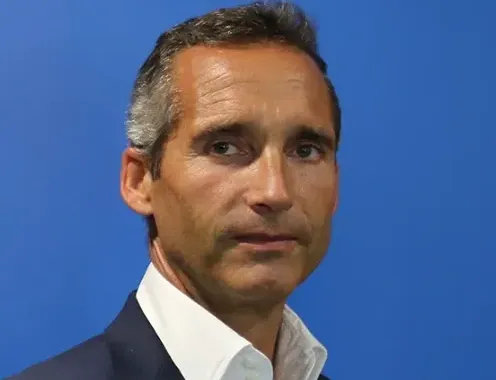
Cedric Hyde - Regional CFO - Merck Serono
What are your thoughts on the upcoming Ecopop Referendum?
Regardless of the outcome, for Switzerland it is potentially a message to the outside world which is not good for our global image. If you look at it together with the February 9th 2014 vote there is just the slight concern that our neighbouring countries will not be happy with the messages that are conveyed.
The competitiveness of the Swiss economy is based on a set of framework conditions, which include a highly skilled and multicultural workforce. Irrespective of the results of the votes, the simple fact that the Swiss people are arguing over this kind of subject matters is most likely not perceived as an appealing signal when it comes to attracting talents to Switzerland.
What is the Merck position on Corporate Social Responsiblity (CSR)?
At group level we have a report on all of our CSR activity - it is available here:
http://reports.merckgroup.com/2013/cr-report/servicepages/welcome.html
It is a substantial investment, but we are keen on it, therefore it is something we are very pro-active about. Let me provide two examples relating to diversity:
Take the opportunity to master two or three languages. Communication and therefore language are very important. Internationally, English generally prevails. However, in Europe for finance professionals, and also for scientists and other professionals with a cross-border scope of activities, it is a genuine advantage to master other languages.. Although English remains the main language in today’s business environment, if I was 25 now, I would probably try to learn Chinese.
What has been your best, or worst, interview experience?
My worst hiring experience was really quite fascinating. The candidate tried to force himself into the position by virtue of key personality elements he simply did not have. I was interviewing for a finance position with precise needs in terms of management style. The candidate was clearly very motivated for the job, and seemed to be trying to convince himself, probably before, and certainly during the interview, that he could do this job while the required management style was quite obviously not fitting with what I could perceive as the candidate’s personality and aspirations. I really think this was the worst thing to do – the candidate was, consciously or not, tricking himself. If I had hired him it would have been terrible for him! In this case, the whole interview was like a Greek Tragedy. You could see the negative outcome that was underway, but you could not do anything to prevent it.
The best experience from my side, as an interviewee, eventually derived from a situation where I was completely unprepared. I had gone for an interview at a company, and as I was being shown out, we bumped into one of the interviewer's colleagues, and he asked me, off the cuff, if I was prepared to interview for a different position with him. So I said yes. It was to his credit that this was a good interview. He was able to describe accurately and in simple terms the requirements of the position to me, which I had no prior understanding of (since I was not prepared). It was an appealing but overall honest introduction. This led me to have an open mind about it. I ended up having a good interview, and eventually we agreed that I would take the second position. I credit the second interviewer with his ability to select the right candidate, and present the role to someone who wasn't even expecting it. An interesting point here is that my unpreparedness meant I was more open-minded - I had not formed any opinions during my preparation.
What advice would you give to someone who is one day looking to move into a leadership role (Senior Finance Manager/CFO Level)?
This question reminds me of a discussion I once had with a fairly senior manager, about why one manager would perform better than another. We kept coming back to one quality - HONESTY. Always tell the truth. Consider how you deliver the message, but make sure everybody gets it. Structure your message, do your homework properly (different people will react differently to different messages), so you can pinpoint those who may need extra clarification. This simple character trait will enable you to concentrate on positive actions, as opposed to having to be in defensive mode all the time. To be a leader, you need to be trusted. Humility in the good times is also a good trait.
Who would you say the most important figure in business is, and why?
In my own professional life, Mr Ernesto Bertarelli was the most important business leader who has had the most influence on the way I think and the way I act in a business environment. When I had the privilege of being part of his organization, his leadership was very impressive, and it is quite visible citing his work with the America’s Cup. His leadership style at the Serono Group, especially in times of difficulty, was quite frankly amazing. Mr Bertarelli has mastered two skills that are generally hard to combine in one single manager. He had the boardroom strategic communication mastered, as well as the media communication, but he was also very operations focused with strong interpersonal skills. He would literally walk the floor on a regular basis, discussing issues and opportunities, asking for ideas for improvement from anyone (one of his skills was creating minimal disruption in the organization with these ” missions”?). Mr Bertarelli would then somehow use this information in order to feed the boardroom discussions and decisions. He made this operational closeness part of the culture at Serono, and everybody became pretty comfortable with it by the end.
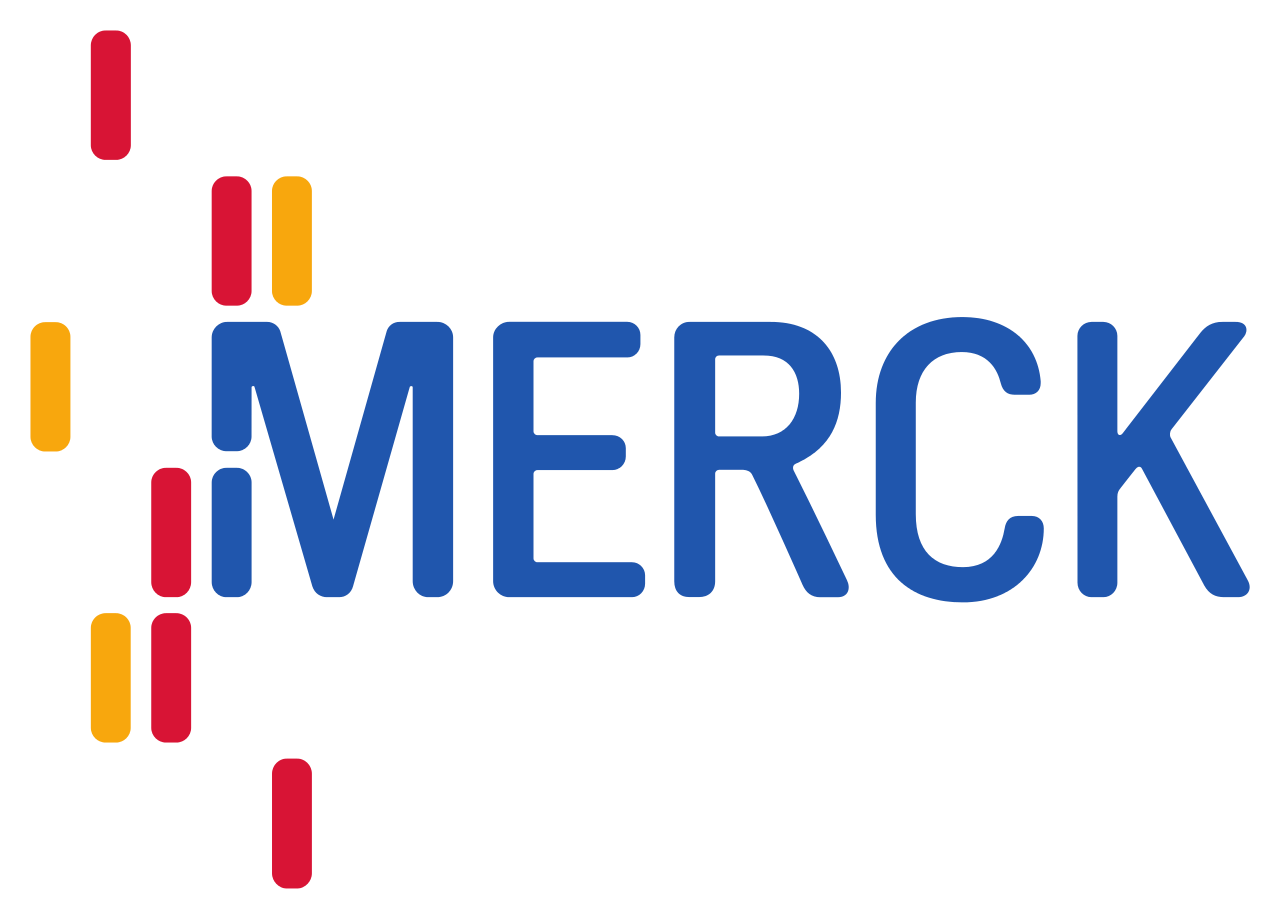







You can also use your social account to sign in. First you need to:
Accept Terms & Conditions And Privacy Policy